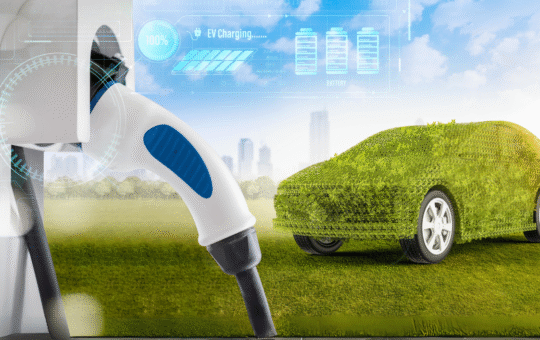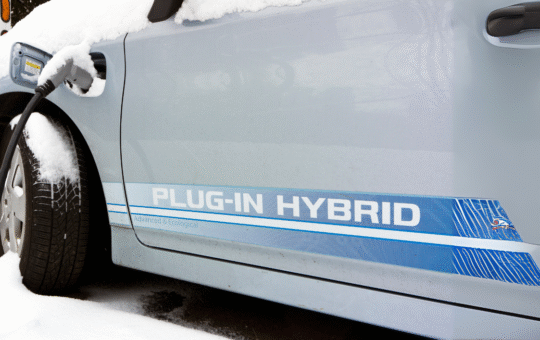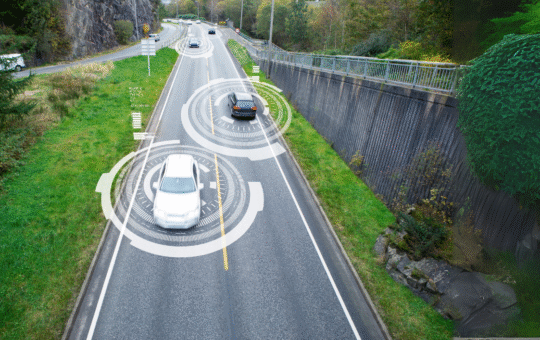
Level 1 Award in Introduction to Hybrid and Electric Vehicles
- Gain an understanding of the fundamentals of hybrid and electric vehicle systems.
- Learn about the environmental and economic benefits of EV technology.
- Develop a foundation for advancing into specialized EV and hybrid vehicle studies.
- Explore emerging career opportunities in the electric mobility industry.
- Understand the basic principles of hybrid and electric vehicle operation.
- Identify the components and systems unique to hybrid and electric vehicles.
- Learn the advantages of EV technology over conventional vehicles.
- Explore the current trends and future potential of the electric vehicle market.
- Introduction to Electric Mobility
- Overview of hybrid and electric vehicle concepts.
- Environmental impact and sustainability benefits.
- Key Components of Hybrid and Electric Vehicles
- Batteries, motors, and controllers.
- Differences between hybrid and fully electric systems.
- Charging and Energy Storage Systems
- Types of EV chargers and charging infrastructure.
- Basics of energy storage technologies, including lithium-ion batteries.
- Trends and Innovations in EV Technology
- Advances in EV range, charging speed, and efficiency.
- Future possibilities, including autonomous EVs and solar-powered vehicles.
- Progress to Level 2 Awards in Advanced Hybrid and Electric Vehicle Systems.
- Explore entry-level roles in EV service, maintenance, or manufacturing.
- Pursue further qualifications in automotive engineering with a focus on EV technology.
- Beginner-Friendly Curriculum: Perfect for those new to EV and hybrid vehicle concepts.
- Industry-Relevant Content: Stay ahead in a growing sector with cutting-edge knowledge.
- Expert Guidance: Learn from experienced professionals in the EV field.
- Recognized Certification: Strengthen your credentials in sustainable automotive engineering.
Study Units
- Introduction to Electric Mobility
- Overview of hybrid and electric vehicle concepts.
- Environmental impact and sustainability benefits.
- Key Components of Hybrid and Electric Vehicles
- Batteries, motors, and controllers.
- Differences between hybrid and fully electric systems.
- Charging and Energy Storage Systems
- Types of EV chargers and charging infrastructure.
- Basics of energy storage technologies, including lithium-ion batteries.
- Trends and Innovations in EV Technology
- Advances in EV range, charging speed, and efficiency.
- Future possibilities, including autonomous EVs and solar-powered vehicles.
Upon completing this award, learners will:
- Understand the basic principles of hybrid and electric vehicle operation.
- Identify the components and systems unique to hybrid and electric vehicles.
- Learn the advantages of EV technology over conventional vehicles.
- Explore the current trends and future potential of the electric vehicle market.
This award is designed for individuals who are new to the concept of hybrid and electric vehicles (EVs) and wish to explore this rapidly growing sector of sustainable automotive engineering. It’s ideal for:
School Leavers and Students
Young individuals eager to learn about modern, eco-friendly vehicle technologies and prepare for a future in green automotive fields.
Career Shifters
Those looking to transition into the booming electric vehicle industry and seeking foundational knowledge to kick-start a new career in automotive technologies.
Eco-conscious Enthusiasts
Individuals passionate about sustainability and green technologies who want to understand how hybrid and electric vehicles contribute to the future of transportation.
Entry-Level Workers
Those seeking entry-level roles in the EV sector, such as service, maintenance, or sales positions in electric vehicle-related companies.
Technically Curious Individuals
Anyone with an interest in how hybrid and electric vehicles work, from students to hobbyists exploring innovations in the automotive industry.
Our assessment process is designed to ensure every learner achieves the required level of knowledge, skills, and understanding outlined in each course unit.
Purpose of Assessment
Assessment helps measure how well a learner has met the learning outcomes. It ensures consistency, quality, and fairness across all learners.
What Learners Need to Do
Learners must provide clear evidence that shows they have met all the learning outcomes and assessment criteria for each unit. This evidence can take different forms depending on the course and type of learning.
Types of Acceptable Evidence
Assignments, reports, or projects
Worksheets or written tasks
Portfolios of practical work
Answers to oral or written questions
Test or exam papers
Understanding the Structure
Learning outcomes explain what learners should know, understand, or be able to do.
Assessment criteria set the standard learners must meet to achieve each learning outcome.
Assessment Guidelines
All assessment must be authentic, current, and relevant to the unit.
Evidence must match each assessment criterion clearly.
Plagiarism or copied work is not accepted.
All learners must complete assessments within the given timelines.
Where applicable, assessments may be reviewed or verified by internal or external quality assurers.
Full learning outcomes and assessment criteria for each qualification are available from page 8 of the course handbook.
Top Courses
No results found.
Related Courses
Let's Get in touch
Deleting Course Review
Course Access
This course is password protected. To access it please enter your password below:



